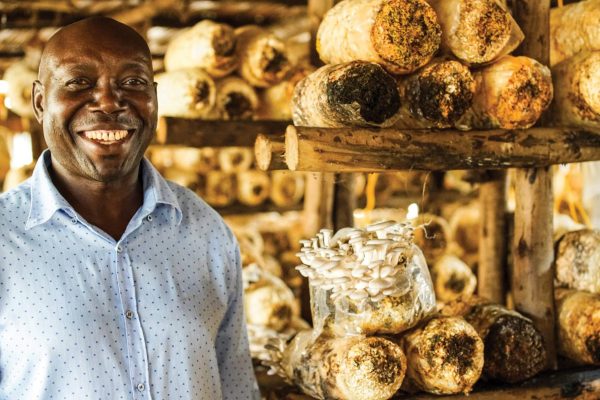Click here for English Translation
Presenter: Let’s get to know Nashwan Dhahir, Water Resources Engineer and Country Manager of cewas in Iraq. Hi Hi
Presenter: Nashwan, now you’re working with WE4F initiative to support around 17 innovators in the MENA region in order to innovate ways to produce water/ energy to in a sustainable way. Could you please elaborate how important are these youth initiatives in reality in solving water issues?
Nashwan (with correcting what the presenter started stating): This program basically promotes and helps in food production through using less water or less energy. Here we will gain two things basically: we reduce the consumption of water by significant amounts and also produce food and promote food security. Let’s not forget that scarcity of water or bad management of water will result into threatening the food security in the region.
Presenter: Nashwan, could you please give me numbers on these projects that exist in the region and the countries that they are located in?
Nashwan: the aim was to include 10 countries in the MENA region, except the Gulf Countries. But we saw the applications that had been submitted are not from all the targeted countries. For example: we saw good applications submitted from Lebanon, Egypt, Jordan, Tunisia, but in the same time we lacked good applications from Sudan for example or the country that I am from “Iraq” or Palestine.
Presenter 2: we will get to know one of the participants in this program from Egypt (Aya Tariq). Aya Tariq is a founding member of Benaa in Egypt and works on providing units to treat wastewater and distribute it in the rural areas in Egypt. Hi Aya! How are you? All good, how are you?
Presenter 2: Aya, your business is to build units to treat wastewater and use the treated water for irrigation, but you chose to target rural areas in Egypt. Tell me, what’s the problem there in the rural areas?
Aya: If we talk about the problem of wastewater in general in Egypt, we have around 53% of the areas in Egypt are covered with sewers systems connected to central wastewater treatment plants to treat the wastewater. The problem is with the rural and far areas that do not have infrastructure which leads to having difficulty in sending the wastewater to the central WWTPs. The infrastructure needed to transport water from rural areas to the central WWTPs makes the costs so high, higher then costs of the actual treatment process. The need for proper sanitation is huge, and the available resources at the government are not adequate and the existing sanitation system is not even sustainable in the current time.
Presenter 1: Could you please explain how these units work that you provided to some rural areas?
Aya: These units are modular, connected to each other and the inlet is connected to the accumulated wastewater. It has different stages of treatment – chemical and biological treatment. The treatment depends on the contaminants in the water. The output will be two products: water that is suitable for irrigation, and compost that could be used as conditioner/ fertilizer for farmers that helps them to reduce using chemical pesticides which in result less harm for the plant.
Presenter 2: Nashwan, you might have received several applications from businesses that are similar to this and treats wastewater and produces water for irrigation and fertilizer?
Nashwan: Yes, back then when we were receiving applications, we received different applications for different ideas and solutions, but fortunately we met Suwaco and Ms. Aya, and we are happy to work with.
Presenter 1: Aya, at what stage of development are you now?
Aya: By now, we’re done with validating/ verifying the technical solution that we provide using the local raw materials available in the Egyptian market. We usually need to go through adaptation processes when we bring a new technology to the community and market.
Presenter 1: Nashwan, if we get back to Iraq, and if some talks about the water scarcity topic in Iraq, s/he feels strange because “Mesopotamia” the country of the two rivers doesn’t have enough water and what’s stranger is that there are no business solutions applied for your program that treats water/ producing water sustainably. Could you please explain why?
Nashwan: in Iraq, as a concept, we don’t take wastewater treatment as a priority whether by the governments that we had so far or even by the popular culture. You will not find someone who could possibly think of treating wastewater, how can we benefit from it? Or even the socio-cultural acceptance: it might be difficult for the person to accept water that has been recycled/ treated.
Also, if I mention a city like Baghdad, Erbil, or any other city, the only concept that exists is that a wastewater treatment project should be a massive one and central as well. This project should need massive resources, management …etc which we already lack …. (end of conversation).
Here I wanted to shed the light on the importance of introducing decentralized sanitation solutions instead of focusing on the centralized ones as the only solution. The presenter ended the conversation.
















